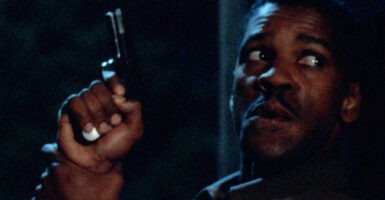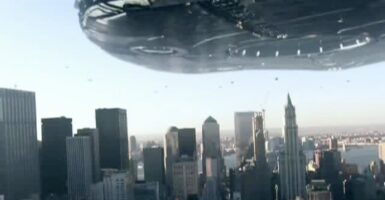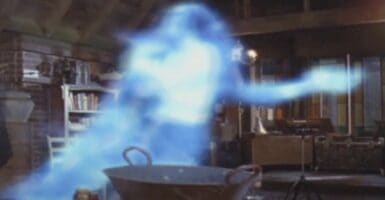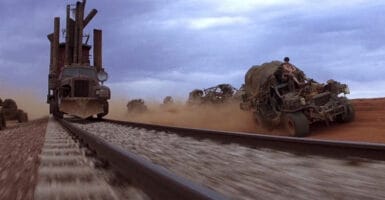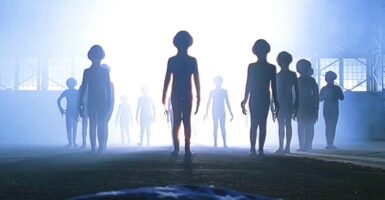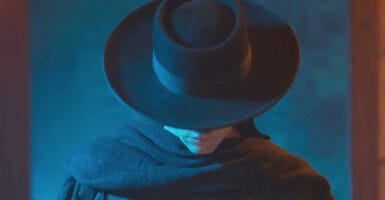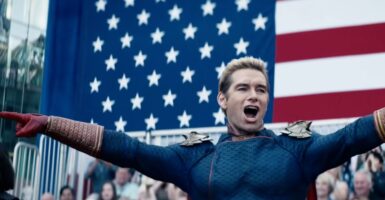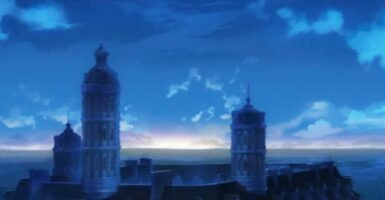Producer Gary Kurtz On How Star Trek Influenced Star Wars
This article is more than 2 years old
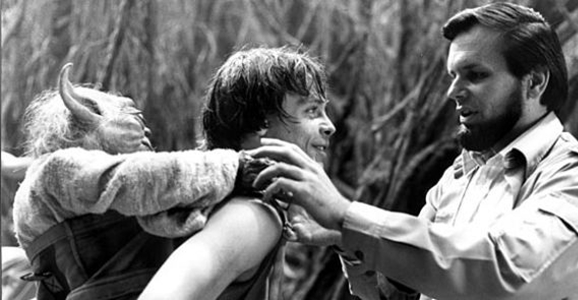 Producer Gary Kurtz was there for the earliest foundations of Star Wars, so it stands to reason he’s got some insights on the whats and the wherefores and the how-comes. With Star Wars undergoing a new beginning of sorts in the wake of the Disney buyout, it’s the perfect time to look back at how George Lucas‘ epic franchise first came together, and new interview with Kurtz reveals several fascinating tidbits about the earliest origins of Star Wars, and just how much influence that other iconic space series had on Lucas’ creation.
Producer Gary Kurtz was there for the earliest foundations of Star Wars, so it stands to reason he’s got some insights on the whats and the wherefores and the how-comes. With Star Wars undergoing a new beginning of sorts in the wake of the Disney buyout, it’s the perfect time to look back at how George Lucas‘ epic franchise first came together, and new interview with Kurtz reveals several fascinating tidbits about the earliest origins of Star Wars, and just how much influence that other iconic space series had on Lucas’ creation.
Writer Chris Taylor interviewed Kurtz for his new book How Star Wars Conquered the Universe, but he also shared some very intriguing insights via Mashable. It’s more or less common knowledge that Star Wars owes much of its existence to the classic sci-fi serials that Lucas grew up loving. In fact, the original plan for what became Star Wars was to make an actual new Flash Gordon movie. But Flash rights owners King Features insisted on “draconian” restrictions, and so Lucas and Kurtz instead began discussing making an original space opera movie in the same vein as those staples of Golden Age sci-fi. Kurtz said:
It was just the idea of capturing the energy of the Flash Gordon, Buck Rogers style of space opera, which hadn’t been done for so long. It was really during American Graffiti that we discussed it a lot, because it was on the paperwork when we made [an earlier, soon-abandoned] deal with United Artists for two pictures. One was a 1950s rock and roll movie, and one was an unnamed science fiction film. That was about the extent of the description at the time. There was no idea of what that science fiction movie would be like. We did discuss Flash-Gordon-type stories at great lengths.
Kurtz also said that Star Trek was a clear inspiration for Star Wars, which I’m sure will give some of the staunch either/or fanboys out there fits of indignation. Kurtz said:
[George] did talk about that [show] quite a bit. I mean Star Trek, the early series, was pretty much all human drama. There was a touch of humor in it, but most of it was down to relationship stories. There wasn’t much in the way of intergalactic battles. They didn’t have any money.
But it was set in this kind of futuristic kind of environment that was inspiring. It freed up the mind to think about what would it be like to travel to distant galaxies and encounter other species. I think that that definitely was one of the influences — because that’s what Flash Gordon was like too.
It’s interesting to think how the two franchises have come full circle in some ways. J.J. Abrams resurrected a faltering Star Trek franchise by rebooting Star Trek in a very Star Wars way. So successfully, in fact, that now he’s helping reinvigorate Star Wars itself as George Lucas steps away from the helm. “And the path was a circle. Round and round.”
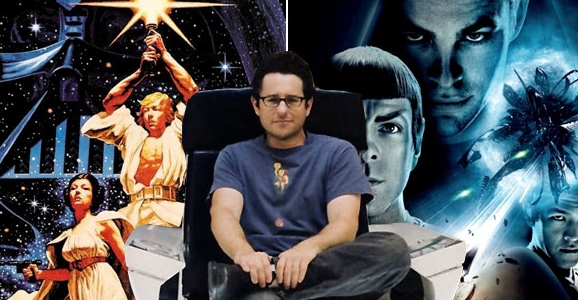
Surprisingly, Kurtz downplays two sources that are regularly cited as major influences on Lucas and on Star Wars: the Akira Kurasawa movie The Hidden Fortress and Joseph Campbell’s The Hero With a Thousand Faces. About the former, Kurtz says:
There are definite comparisons, there’s no question, if you want to look hard enough: the two peasants, and the idea of transporting a princess across hostile territory. It’s a fairly straightforward action adventure. But I mean, they’re very generic.
So what about Joseph Campbell, arguably the influence that’s name-checked the most often when people are talking about how Star Wars came to be? Cart before the horse, insists Kurtz. He says the association between Star Wars and Campbell came from Lucas mentioning the book in interviews, but claims that Lucas hadn’t even finished reading the book until the first Star Wars film was nearly finished.
That’s not to say the connections aren’t accurate, but Kurtz chalks that up to the fact that Campbell’s book correctly identified common narrative patterns that Star Wars, like many other stories, made use of. So it could be a case of form following function, rather than of Lucas reverse-engineering Campbell’s ideas to create Star Wars. “There are definite connections there,” says Kurtz, “but I think that’s a bit too analytical.”
The rest of the interview is a fascinating read — so much so that I think I’m definitely going to have to read the actual book. One last thing really stood out to me, however, because I think it’s incredibly relevant to where science fiction movies are right now. In discussing the type of movie Lucas and Kurtz wanted to make, the Star Wars producer said:
The last proper space opera type of science fiction was probably Forbidden Planet in 1955. Since then, all the science fiction seemed to go downhill towards either Creature from the Black Lagoon type-horror, or alien invasion from space, or just this dystopian kind of depressing stories about post-apocalyptic society. And none of that was fun.
“Dystopian … depressing stories about post-apocalyptic society.”
“None of that was fun.”
Boy, does that sound familiar or what? Big-screen science fiction has been lodged firmly in the post-apocalyptic for several years now, but it looks like the grand old space opera is about to make a huge comeback. Guardians of the Galaxy has earned over half a billion dollars worldwide and become one of the few success stories of the 2014 summer box office. Comparisons to Star Wars have been flying for months, and the influence of Lucas’ movies on director James Gunn is both acknowledged and readily apparently. Guardians takes us to far-flung corners of the galaxy, filled with crazy characters and larger-than-life struggles. But more importantly? It was fun. And that’s something a lot of Hollywood science fiction had forgotten to strive for in recent years.
And now there’s more actual Star Wars on the horizon. A lot more. Hopefully it will be as good as the early hints are making it seem, and hopefully it will be just the first wave of a true renaissance in the sort of big-screen space operas that had, like the Jedi, become all but extinct.
